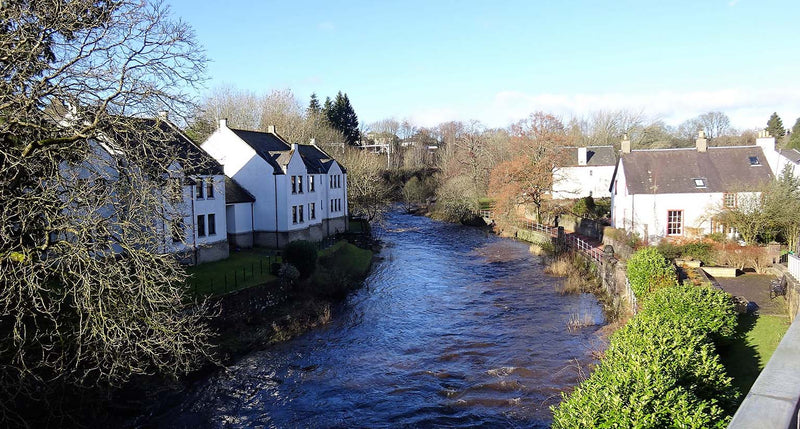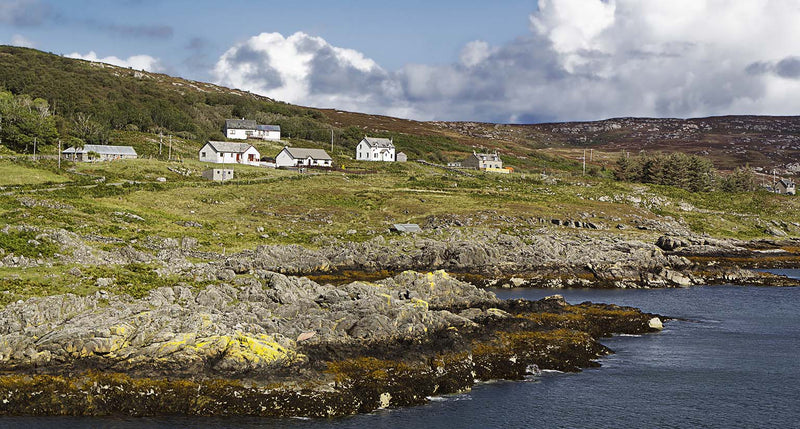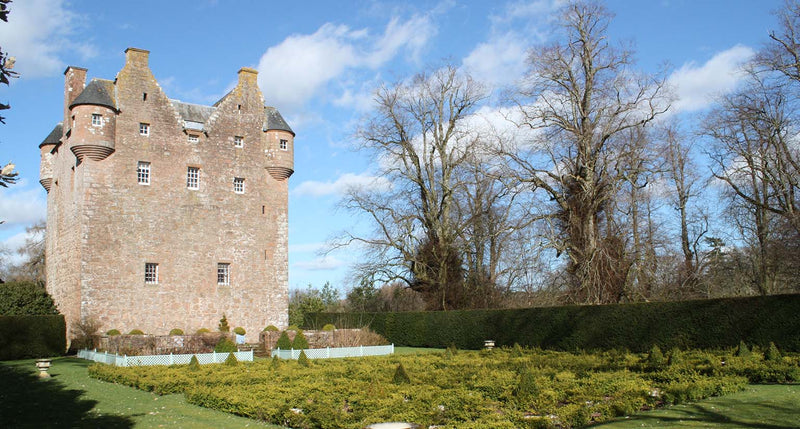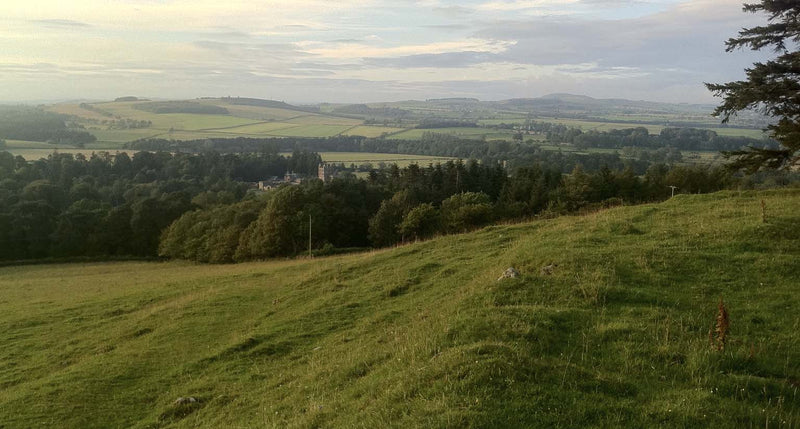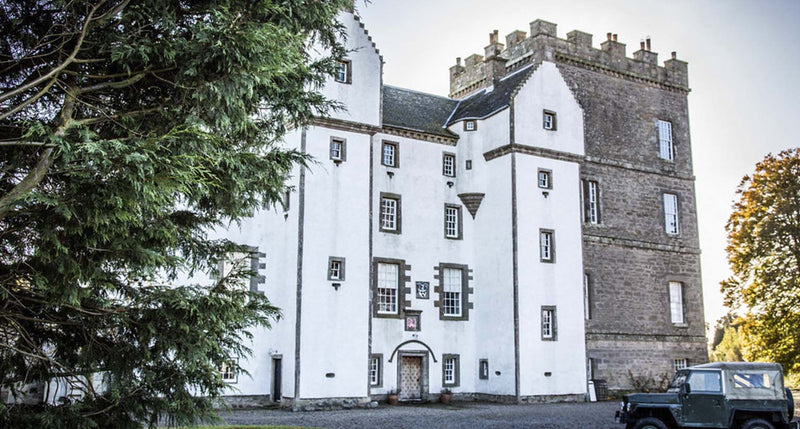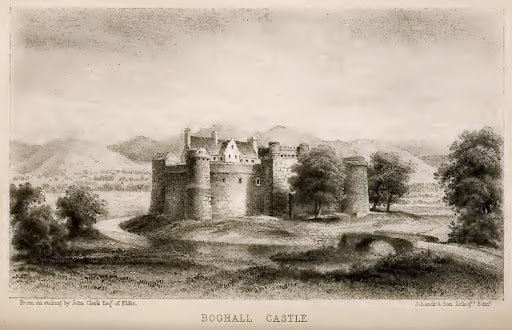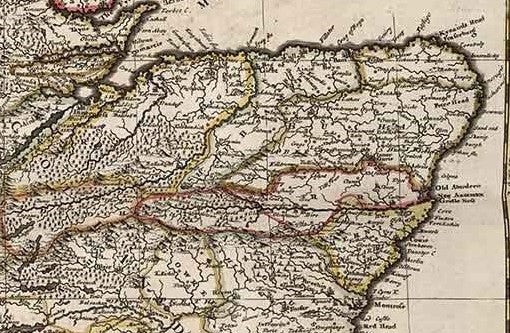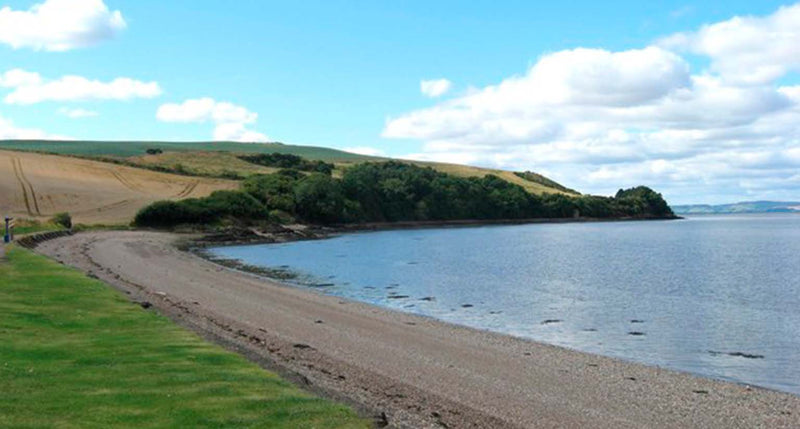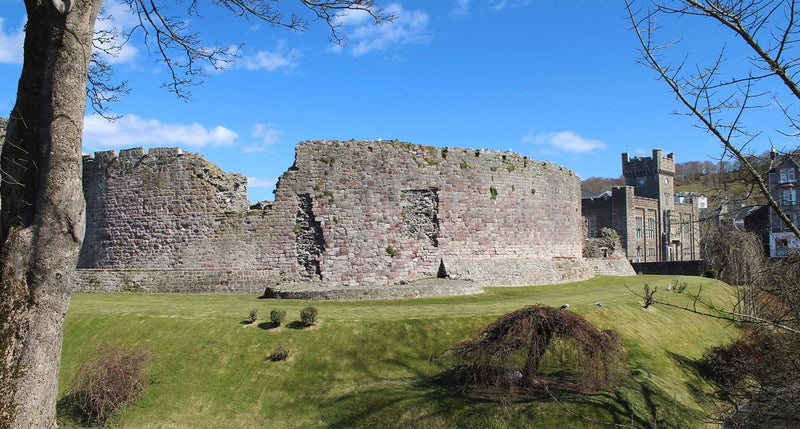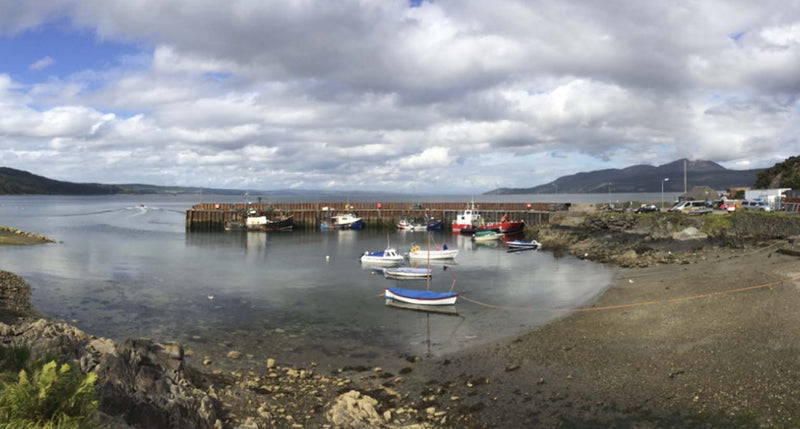The name is commonly found in Dunblane and the ‘de Hotons’ were an old family in Cumberland. Symon de Hoton was juror on an inquest held before the sheriff of Lanark in 1263. John Hudton was the abbot of Cupar in 1460. Thomas Huttoun was retoured heir in lands in the parish of Kellis in […]
Category Archives: Clan History
The gaelic name Mac a’Phi gives the English phonetic spelling Macafie, sometimes shortened to Macfie or MacPhee. However, in its original form, the name was probable Mac Dhuibh Shith or “Son of the Dark Fairy”. The “dark fairy” is synonymous with the dark stranger who must be the first to cross the threshold at the […]
The French word ‘jardin’ means ‘garden’ or ‘orchard’ so its presumed that the family originally from France may have lived nearby one or other. Members of the du Jardon family traveled over with William during the Norman conquests in 1066. Records of the name don’t appear in Scotland though until around 1153, the name Wmfredus […]
The name MacGill is said to derive from ‘Mac a Ghoill’, meaning ‘son of the lowlander’ or ‘son of the stranger’. The name became established in Galloway prior to the thirteenth century. Maurice Macgeil witnessed a charter to the church of St Thomas the Martyr of Arbroath in 1231. Sir James Makgill, who was a […]
Records of the name Nesbit can be traced back to the 12th century in the Barony of Nesbit in Berwickshire. The area itself possibly taking the name from a nose shaped hill. Variations of the name, however appear in older documents: William de Nesbite is recorded as witness to a charter by Patrick, Earl of […]
Meaning ‘native of Flanders’. Several people of this name are found in the 12th century. A family of this name posessed large territories in the Upper Ward of Lanarkshire, where their residence was Boghall Castle near Biggar. Boghall Castle, now ruinous, was built by Clan Fleming on lands gifted to them in the 14th century. […]
Although it is suggested that the family have Norman ancestry it is more probable that the name Burnett is a variant of Burnard from the Old English personal name Beornheard who occupied England before 1066. ‘Beornheard’ translates from the Saxon as ‘bear hand’ but is sometimes also translated as ‘brave warrior’. The family, called themselves […]
Also found as Kynnier, this name originates in the lands of Kinnear near Wormit in Fife. The family is descended from Symon, son of Michael, who gave a carucate of land of Cathelai to the church of St. Andrews. This grant was confirmed by King Malcom IV. The Kinnears were originally vassals of the Priory […]
The Stuarts of Bute are descended from Sir John Stewart, born between 1345 and 1390. Sir John Stewart was the son of Robert II of Scotland and was known as ‘The Black Stewart’ (either for his dark complexion or because his brother, John of Dundonald was known as ‘The Red Stewart’. The lands of Bute, […]
The name is derived from the Gaelic ‘Mac-an-T’saoir’ meaning ‘son of a carpenter’ which accounts for its occurrence throughout the Highlands. By the end of the 13th century the MacIntyres of Glen Noe were foresters to the Lord of Lorn. Some became bards, Duncan of Ban, and families of MacIntyre became hereditary pipers. The first […]

